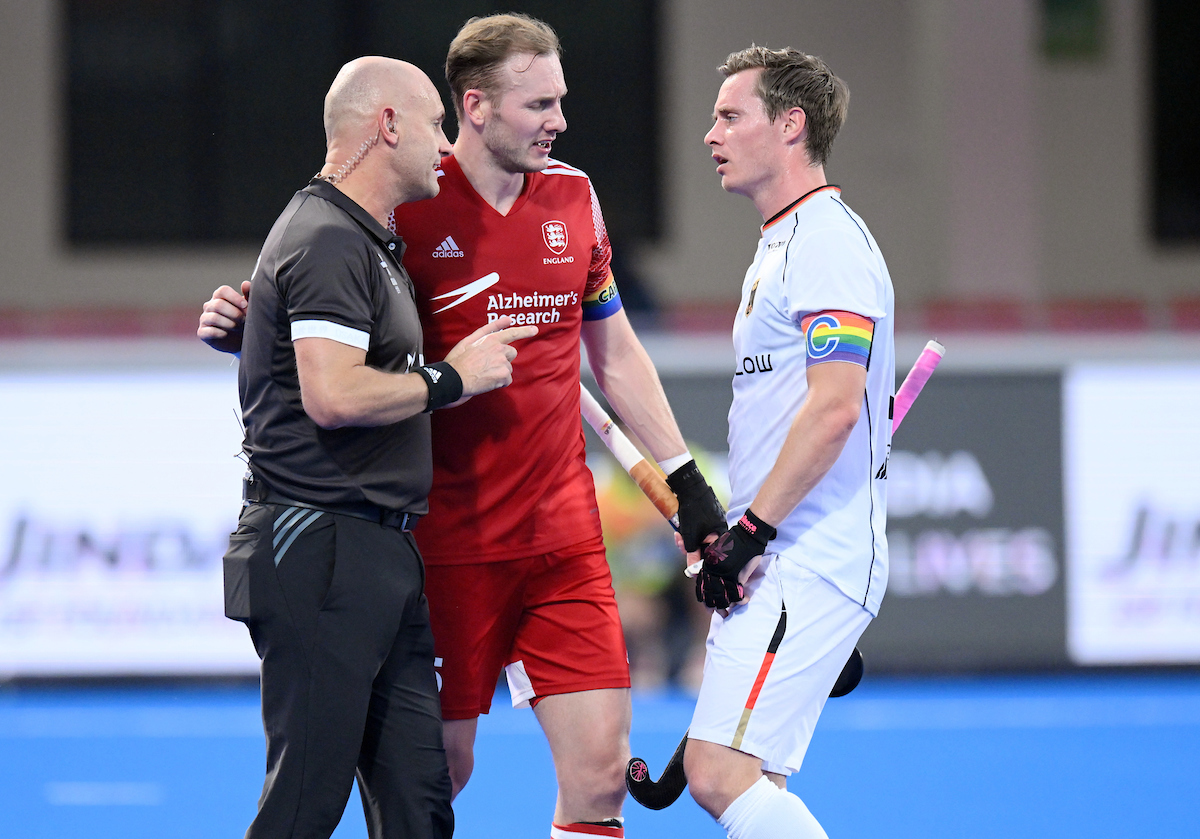The Hockey Paper and our readers pose questions to England Hockey CEO Nick Pink on its new strategy, which promises to make the sport more visible, relevant and accessible over a five-year period
Is there a threat to the future of officiating?
Nick Pink: I see it for my kids in terms of what they participate in on a Sunday. We’ve got to get it right. And actually building on the breadth and diversity of officiating is pretty critical to that. It’s not just men and women. It’s obviously about more young people and more young people seeing that as an opportunity.
There’s a broader point in here as well with the general respect and behaviour in the sport as well to officials and umpires.
And that’s absolutely something I think collectively, we’ve all got to take responsibility on. You see it in other sports, and it’s starting to creep into hockey too. We can see it in terms of area, straight local disciplinary matters that are being taken up on board.
I’ve played the sport for over 30 years. You get good decisions, you don’t always get the decisions you think you should as well, but it’s how you respond to those.
And I think that’s really important in this too. So it’s multilayered. It’s not necessarily complex, but it’s about making sure collectively, we’ve got the right things in place to make sure that officiating is given the priority.
There should be greater accountability also on the field of play.
And actually, one of the things that I heard an umpire shout out in the game that I was playing in recently was, ‘This is not football’ is what he was saying at one point.
I’m not saying that I was one of the agitators or anything by any stretch. But, you know, I do think that’s important. And I think we have to take that responsibility as leaders within the sport but also collectively across the game. And certainly, I think the behaviour piece is a big part of what we’ll see come out of this plan.
- Read More: Our Umpires Special coverage





I enjoy umpiring for my club. I was umpiring at a national over 60s Christmas hockey festival recently, away from my club. I was staggered to have a senior player arguing with a decision on a fun day! I put him straight. It spoiled my enjoyment of the day, even though others congratulated me for my actions after the game! Please respect the umpires at all levels.
Agreed: this is not football, so behaviour towards officials is a side issue. The question was: ” Where is the mention of officiating (umpires) in the strategy?”. From the strategy, the answer is that, in Meaningful Growth, officials are lumped together with coaches, leaders and other voluntary roles into a ‘voluntary workforce’, for whom the strategy is to facilitate access to support and training. So the same, or maybe a bit more. But quality, fitness for purpose, targets… no, there is no mention.
The fundamental flaw is surely this ‘voluntary workforce’ label, when the role is not at like coaching, organisation and admin volunteering. Umpires are essential participants in every match, without whom there is no hockey. We may be only 1/12 of the numbers on the field, but we are 100% involved in ensuring fair play, to the Rules, protecting and encouraging skill, which raises the quality of play, and so increases the enjoyment for players, spectators, and others (not least the umpires). Umpiring deserves more respect and attention from its NGB.
So thank you: access to support and training is welcome, but it needs to be for the specific skillsets of umpiring and training umpires,… and effective. For hockey in England, the bigger issue than behaviour must be the success in training new umpires that, in the decade since 2013, has been half that of the decade before. For a specific target, which was achieved then, and might be again, EH might aim to have 700-800 L1 umpires per year assessed for L1, as it did throughout 2003-2013.
There is a specific Officiating Strategy not only a part of the overall piece. It remains a huge challenge that we are getting to grips with in a number of ways.
As he says, “We’ve got to get it right.” We’ve got to have a culture in the game that means people are happy to give up their time to umpire a match, that they can be confident it will be an enjoyable experience.
Bemused by the headline re football. Is it really considered that poor behaviour to football officials should be tolerated but not in other sports? My view is that officials in any and all sport deserve respect and good behaviour, both paid professional officials and more particularly those who give up their time so others can play amateur sport.
Anyone know where we get a copy of the separate Officiating Strategy from ?